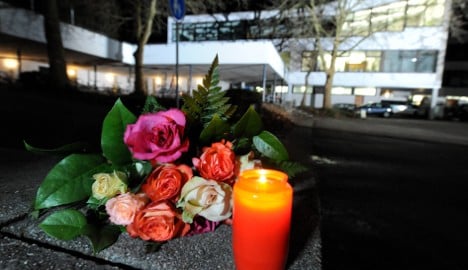The foundation, Gegen Gewalt an Schulen, or “Against violence in schools,” will be officially founded on November 18 thanks to donations of some €50,000. It was formed out of the action alliance Amoklauf Winnenden created by community members in Winnenden after a 17-year-old killed 15 people and himself at his former school and in flight from the crime scene on March 11.
Members include parents of students killed by the shooter.
The new warning system will include a phone and text message hotline, in addition to an online form where students can register evidence of threats from fellow classmates, Amoklauf Winnenden spokeswoman Gisela Mayer said as the scheme was announced on Monday.
The organisation will be aided by church networks and crime prevention organisations to stay running 24-hours a day in the state of Baden-Württemberg where the shooting occurred, and then later across the nation, she added.
In the nearby state of Bavaria, an 18-year-old student attacked an Ansbach high school with five Molotov cocktails, knives and an axe in September. One teacher and nine students were injured – two girls severely.
In May a 16-year-old student nearly severed a fellow classmates’ thumb with a knife when she was caught off guard before she could carry out an arson attack on her school near Bonn.



 Please whitelist us to continue reading.
Please whitelist us to continue reading.
Member comments